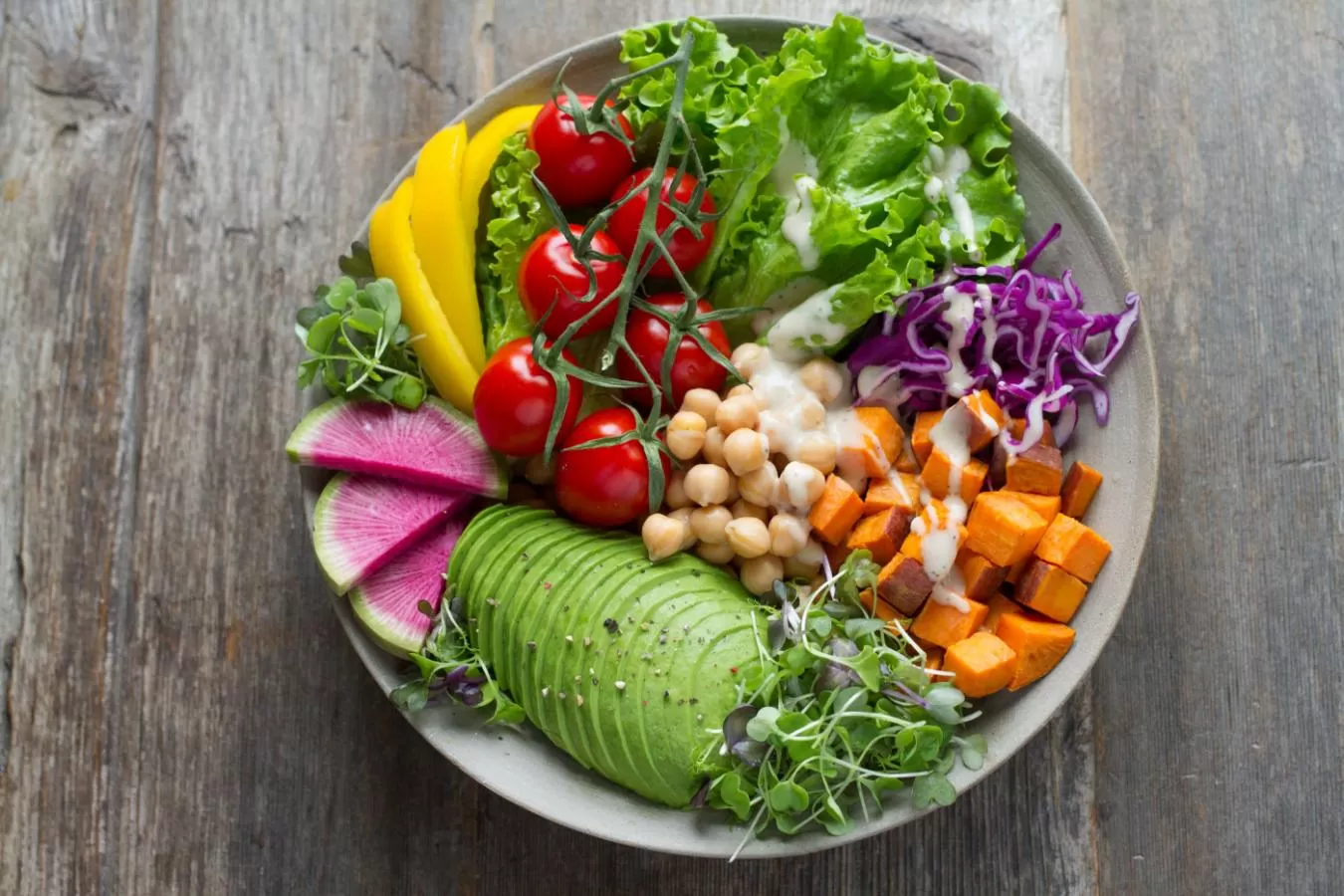Probiotics and Prebiotics
Published: 04/05/2019

Prebiotics Feed the Probiotics
A plant based diet provides lots of prebiotics that feed probiotics, the "good" gut bacteria.
Living inside of your gut are 300 to 500 different kinds of bacteria containing nearly 2 million genes called probiotics. Probiotics are often called "good" or "helpful"" bacteria because they help keep your gut healthy. They make what's known as the microbiota, or the microbiome. Each person's microbiota is unique. The mix of bacteria in your body is different from everyone else's mix. It's determined partly by the environment that you're exposed to at birth and partly from your diet and lifestyle. They affect everything from your metabolism to your mood to your immune system and can aid in preventing and treating conditions like obesity, diabetes, heart disease, and inflammation associated with autoimmune diseases.
Like all living things, probiotics need to be fed in order to remain active and healthy. Prebiotics is the food for probiotics. Probiotics eat prebiotics.
We get prebiotics from plant foods. Certain plant foods contain the types of dietary fiber that feed the friendly bacteria in your gut.
So, to help your good gut microbiome sustain or get better:
- Fill up on fiber rich foods.
- Eat Prebiotic-Rich Food: Good sources of prebiotics include Jerusalem artichokes, chicory root, raw dandelion greens, raw leeks, raw and cooked onions, raw garlic, raw asparagus, whole wheat, spinach, bananas, oats, soybeans and legumes, such as lentils, black beans, kidney beans and chickpeas
- Eat Probiotic Foods: Probiotics are live bacteria or yeasts found in fermented foods that, when eaten, then live in the gut and improve health. Sources include yogurt with live bacteria, sauerkraut, miso, tempeh, kimchi, kombucha, natto, pickles, Gouda, mozzarella, cheddar and cottage cheese and water kefir.
- Avoid Animal Product and Limit Fat: Red meat, high-fat dairy products, and fried foods all reduce the growth of healthy bacteria and enhance the growth of bacteria linked to chronic disease.
- Avoid Unnecessary Antibiotics. (This is an excellent article).
Antibiotics also kill off good gut bacteria.
Categories: Supplements
Tags: #mealplanning
Active Nutrition is a participant in the Amazon Associates Program, an affiliate advertising program designed to provide a way for websites to earn advertising revenues by advertising and linking to Amazon. If you click on one of my recommended item links and then place an order through Amazon, I receive a small commission on that sale, at no extra expense to you of course. This is a way to support me and my work every time you shop at no cost to you.





